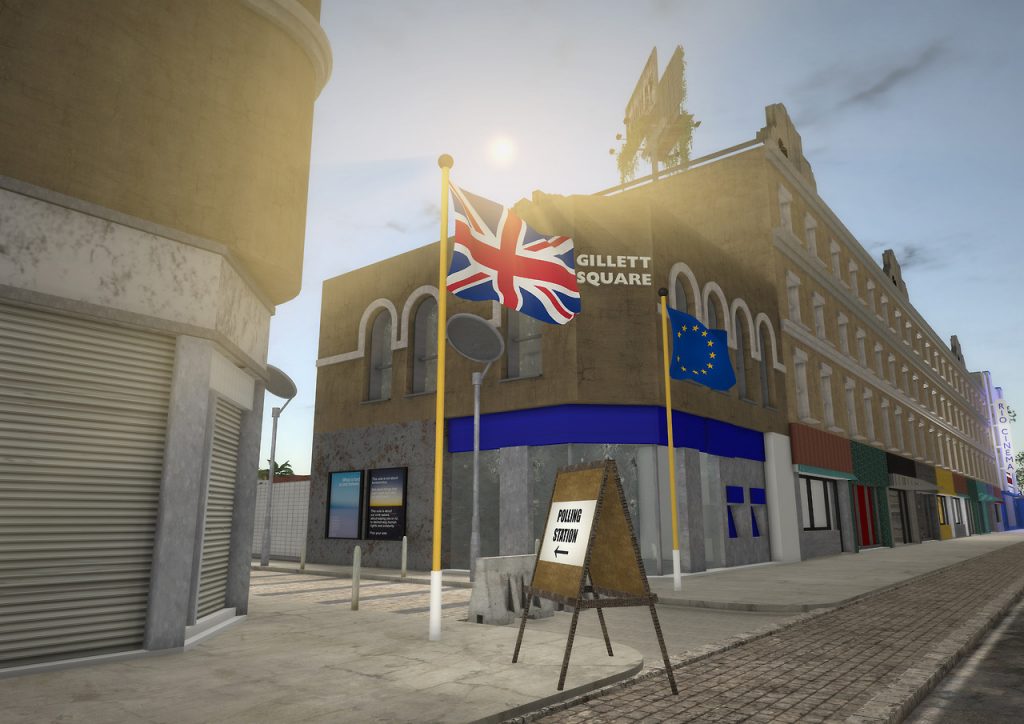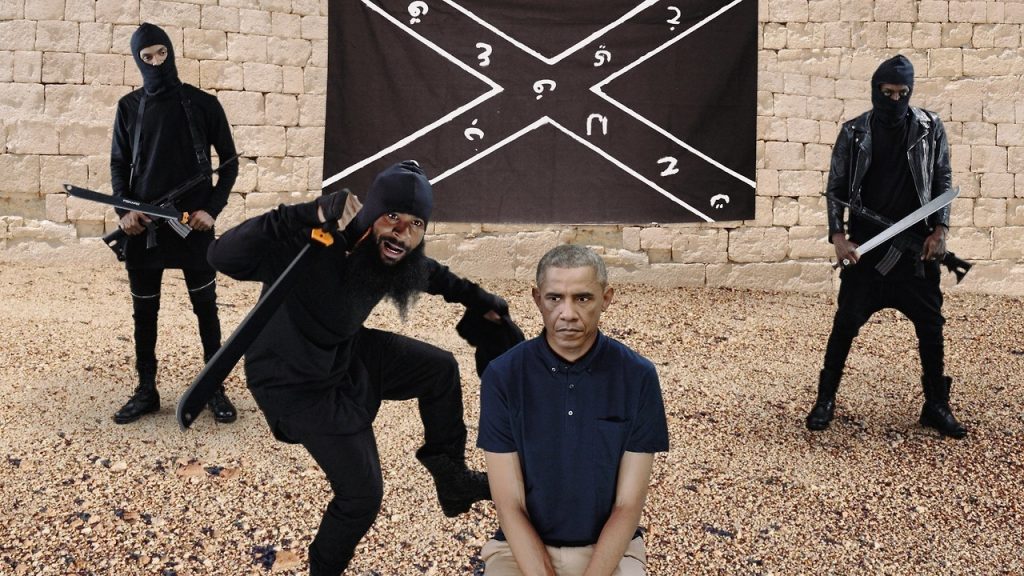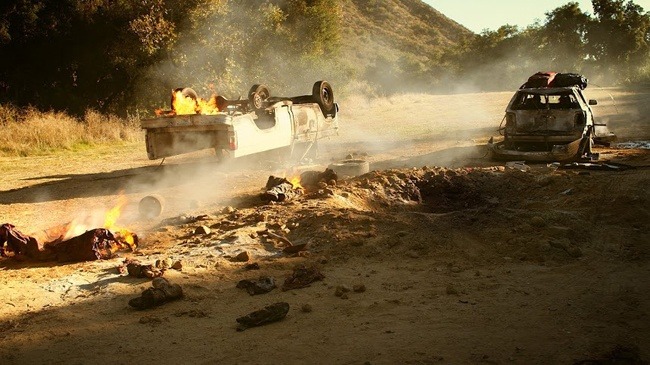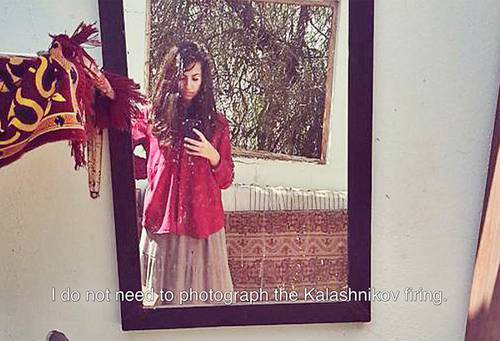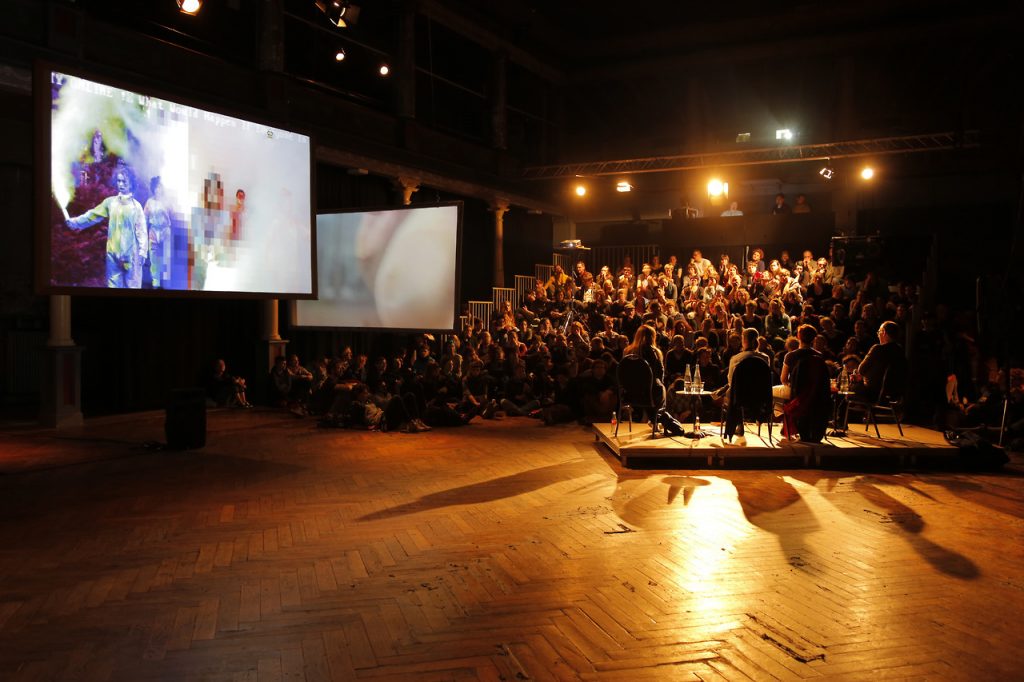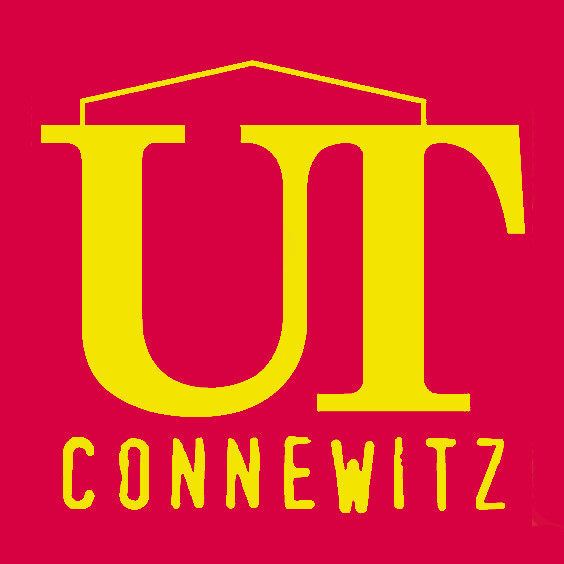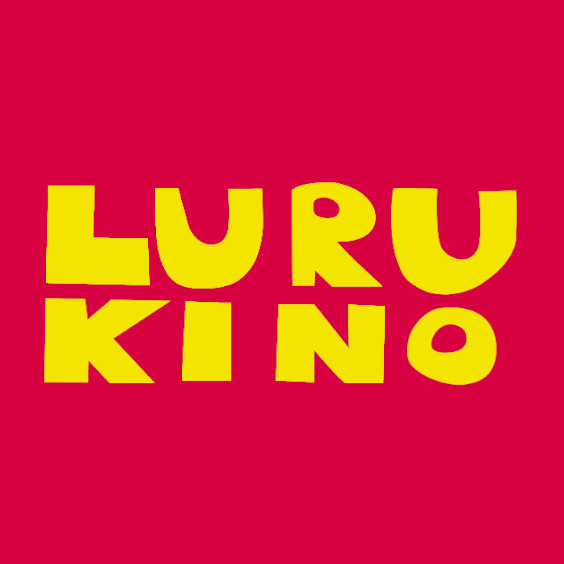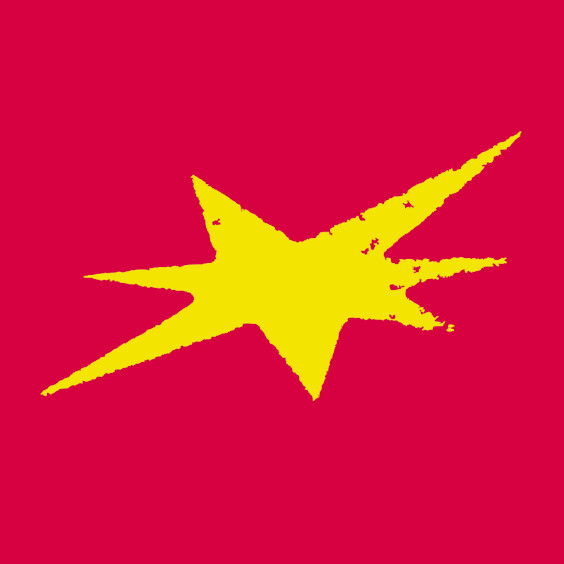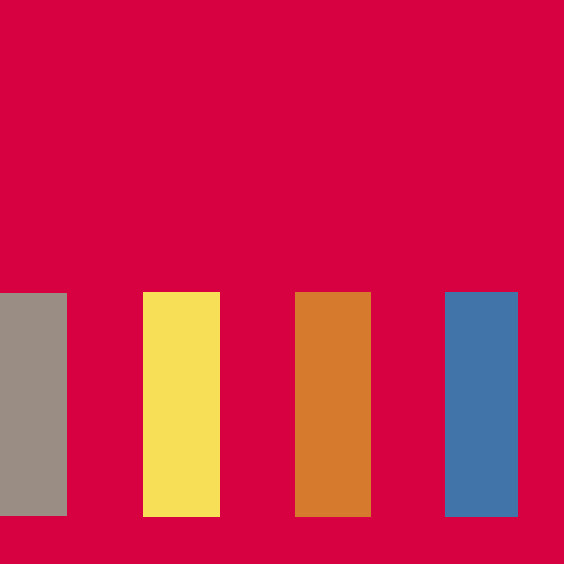True Politics 2017
Here it is: last item on the list! And as you might’ve read or guessed already it’s of course our TRUE POLITICS video art exhibition, which will be held from 07 to 09 April, starting at 6 pm respectively at the ballroom of Schaubühne Lindenfels—with exhibition tours on 07 and 09 April at 6:30 pm. The exhibition features works by some artists, whose names should be familiar to you already like Selma Doborac and Omer Fast and lots of others, which we will introduce in detail soon.
The exhibition will be accompanied by a discussion forum taking place at 08 April on 7:30 pm in which Selma Doborac, Mario Pfeifer, Lars Koch and Angelika Bartl will debate about about the possibilities of documentary film and art and about the responsibilities of artists with regards to information production.
Find more information about the exhibition and the panel at www.gegenkino.de. We will also feed you some more information on the works in the exhibition in the upcoming days.
So, that’s the GEGENkino 2017 programme. We hope you like it and are as excited as us—or at least a bit excited maybe—, too.
Best, your GEGENkino crew
TRUE POLITICS
Video Art Exhibition
The contributions of TRUE POLITICS are documentary in the broadest sense. They consider (geo-)political conditions, the representation of social crisis situations and with marginalized groups. At it, the constituent basis are narratives negotiating the (unequal) disparation of societal forces especially reflecting on their presentability by experimental artistic practices. From a filmaesthetic perspective in this context, we are interested in an overlap of diverse techniques – video art, cinema, report and research, pop-cultural signatures like video clips or video games, fictionalization and reenactment – all of it techniques entering alliances with documentary positions trying to defend a distinct sense of reality in their own fashion repsectively. They have one thing in common: talking about social constellations that either destroy human societies or initiate them, furthermore efforts to achieve a definition of a shift of emancipatory social bonds.
IN THE FUTURE THEY ATE FROM THE FINEST PORCELAIN (Larissa Sansour/Søren Lind) is a piece of fictional criticism showing archaeological working with myths, at which a narrative resistance group buries porcelain to claim its shrinking territory. When the shards once will be dug up by coming generations, evidence of the controversial area’s cultural history will be furnished and as a result – so the hope goes – political aspirations to it will be authorised. Mario Pfeifer’s two-channel work #BLACKTIVIST for one thing consists of a music clip of the rap collective “Flatbush ZOMBiES” which addresses the current circumstances of Afro-American communities in the US. On the other hand, pictures of encounters with the police saturated with violence are flanked by images of the first 3D printing arms factory, which is run in Texas as a non-profit-organisation and makes the blueprints of fabricates publically available for DIY-printing. How picture archives are compiled, how they may or may not be mediated, which issues concerning ethical and pictorial policies are encoded in them: these are the topics of both Selma Doborac’s subjective approach to Bosnian War IT WAS A DAY JUST LIKE ANY OTHER IN SPRING OR SUMMER. and Oraib Tukan’s WHEN THINGS OCCUR, which examines pictures of the Gaza conflict focused on their realisation and their medial circulation. In Lawrence Lek’s dystopian low-budget computer animation EUROPA, MON AMOUR, a drone charts London’s financial and nightclub districts.
Works i.a.:
#blacktivist (Mario Pfeifer, 2015, 2-Kanal, 5’), Empire of Evil (Harald Hund, 2016, 11’), Europa, Mon Amour (2016 Brexit Edition) (Lawrence Lek, 2016, 14’), It was a day just like any other in spring or summer.(Selma Doborac, 2012, 17’), In The Future They Ate from the Finest Pocelain (Larissa Sansour, Søren Lind, 2015, 29’), Lumapit Sa Akin, Paraiso (Come to Me, Paradise) (Stephanie Comilang, 2016, 26’), The Search Drive (Warren Neidich, 2015, 17’), When Things Occur (Oraib Toukan, 2016, 28’)
07 to 09 April, from 6 pm respectively – Schaubühne Lindenfels (Ballroom)
Exhibition tours on 07 and 09 April at 6:30 pm
TRUE POLITICS
Discussion forum
A discussion forum is attached to the topic of the exhibition. Current tendencies and aestehtics within documentary film and video art will
be discussed. At it, the starting point will be the assumption that documentary works do not primarily have to be consulted regarding an
authenticity of their portrayal of reality. Their internal policies seem to be much more important. Which rhetorics of truth, sincerity, objectivity or validity are articulated there? Not only how accurate and correct, but also in which political manner do works refer to reality and truth? What can be made of their linkage with ruling power conditions and their production of subjectivity? Which technologies of truth are generated in this course?
By way of a fetish of authentic documents, video art increasingly presents the prospect of ethical relevance. Is it basically capable of keeping that promise and if yes: to what extent? Moderated by Dennis Vetter, superior issues are about to be under discussion additionally: which potential distinctions to an incessant demand for up-to-the-minute news and image value can filmmakers make? Is the original project of documentary work, manufacturing publicity and authenticity, unrestrictedly viable altogether? Or does the production of correcting and counter information not provide a more attractive approach—linked to the concept of (re-)organising an addressed public?
Discussers:
Selma Doborac lives in Vienna and works in the fields of essay film, documentary and experimental film, photography and conceptual art. Studies in Berlin and Vienna, i.a. at the Academy of Fine Arts Vienna, class of art and film (Harun Farocki).
Mario Pfeifer’s works emerge in various parts of the world. Using different narrative forms, his films and video works consider and investigate specific cultural situations – form the disapperance of indigenous habitats in Chile through to subjective perceptions about the socio-political reality in Saxony.
Lars Koch is professor for media science and modern German literature at the TU-Dresden. His focus of work involves medialization of danger and risk as well as the realtion of fact and fiction.
Angelika Bartl is a film scholar and cultural scientist. Her work interest concern documentary media art taking account of postcolonial theory and
gender studies.
Moderation:
Dennis Vetter is a film critic, independent scholar, curator and festival organizer. As a co-founder and programmer of the re-established Berlin Critics’ Week he keeps visiting festivals internationally, with a focus on documentary cinema, Asian cinema, Queer Cinema and experimental film.
08 April, 7:30 pm
Schaubühne Lindenfels (Ballroom)
Discussion in German

